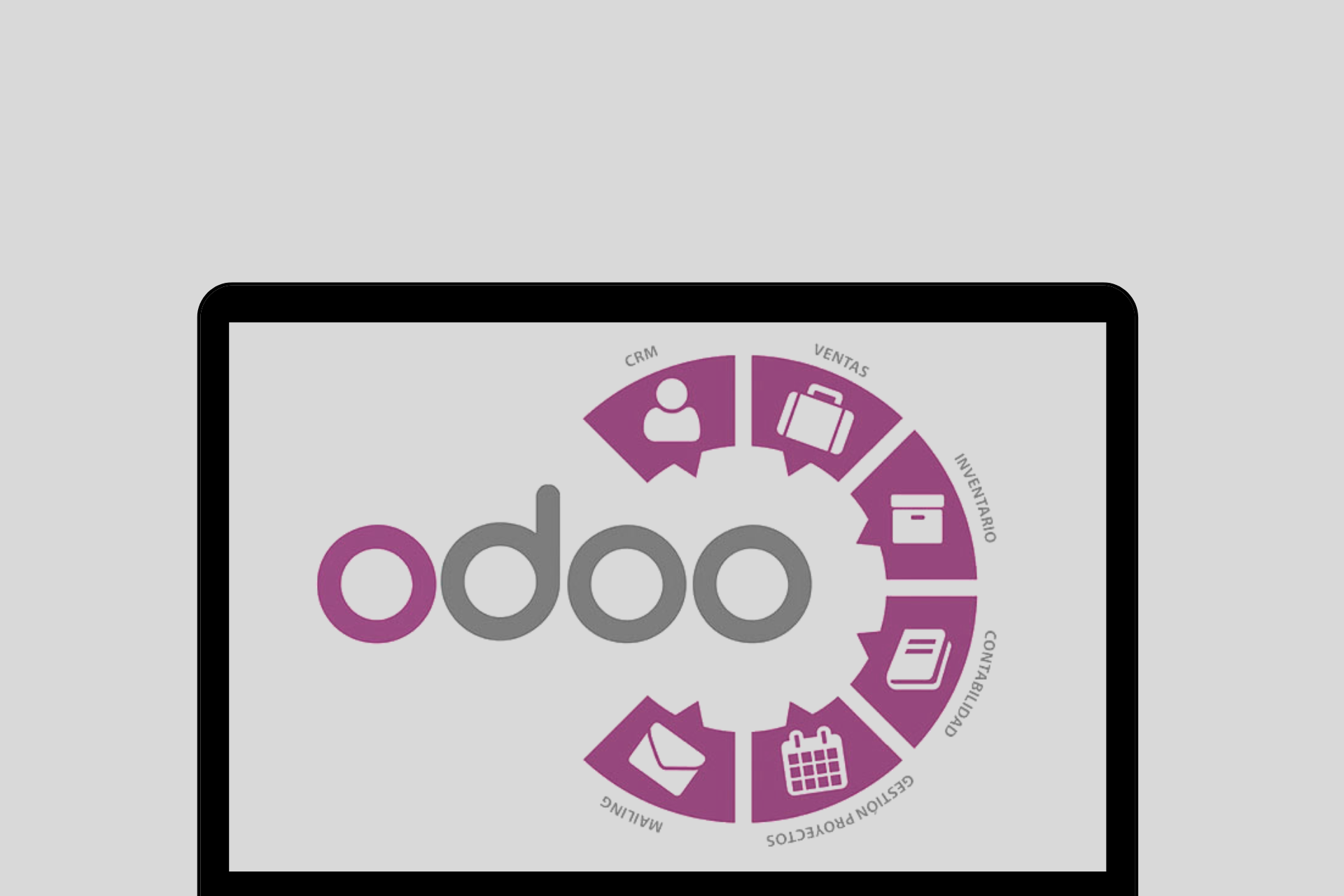Quickly adapting to the changing business environment is a critical aspect of remaining competitive in current times. It is for this reason that Enterprise Resource Planning (ERP) systems have become key elements of modern business operations. These are robust platforms that bring together different activities such as financial management, inventory management, sales, and human resource management under one roof.
Odoo is among the numerous ERP options available on the market today. Odoo has quickly gained popularity due to its adaptability, extensive features, and user-friendly interface it offers. Yet, would it be right for you in 2024? Let us explore further.
What is Odoo ERP?
Odoo is an enterprise resource planning software that integrates various kinds of business applications into one platform. Several strong solutions provided by Odoo help improve the Sales, Marketing, HR, and Accounting efficiency of teams.
Odoo ERP is built on an open-source model. This ensures community-led innovation and enables firms to customize their ERPs as per their unique requirements too.
What sets Odoo apart?

Odoo stands out in the crowded ERP market with its unique approach to business software. At its heart, Odoo has a unified framework that merges different business applications. This means everything from accounting to inventory, sales, and marketing in one place.
The second point of differentiation is that Odoo is an open-source system. Consequently, this fosters creativity and flexibility enabling businesses to customize their software. It also implies that there exists a vibrant community of developers who are constantly enhancing and expanding on Odoo’s functionalities.

Odoo compared to other ERP competitors
Odoo also doesn’t have a vendor lock-in period like most of its ERP competitors. With Odoo, you get the source code, GitHub access, and the flexibility to host on their infrastructure or on-premise.
Odoo's app-based structure is both a strength and a potential challenge. It gives freedom to businesses allowing them to choose only what they need. At the same time, it offers users many options that may overwhelm them.
Odoo is also an excellent ERP for eCommerce. It provides all the tools required for shop floor planning, POS, IoT, inventory management, expense calculator, and more!

What are the Odoo key features?
Odoo's strength lies in its versatility and comprehensive feature set. Here are some key features that make Odoo ERP stand out. We’ll look into how Odoo can help different teams in an organization.
General Features
- Modular System: The architectural design of Odoo is based on modules. This enables businesses to pick and choose only those features they need, hence creating a customized ERP solution. With the growth of your enterprise, there are simple ways through which you can add new modules and expand functionality.
- User-Friendly Interface: Odoo's interface is user-friendly in that it has an intuitive and clean look that allows easy navigation. Users can easily check out the most important information on their personal customizable dashboards.
- Multi-Company Support: In Odoo, multiple companies may be managed under one instance for complex business structures. This feature increases effectiveness and efficiency across distinct entities.
- Global Reach: Being multi-currency and multi-language capable makes Odoo highly suitable for multinational organizations. It supports transactions in several currencies and it is available in multiple languages.
- Open-Source Community Edition: Odoo’s technology is powered by a community of over 100k developers working together from different parts of the world. There exists a free open-source version of Odoo. This community edition comes with basic functionalities and links to developers’ networks worldwide.
Sales & CRM
- Customer Relationship Management (CRM): Odoo’s CRM tool helps businesses track and nurture leads through the sales pipeline. It provides one central platform for managing customer interactions, tracking communication history, and analyzing sales performance. The system makes it easy to prioritize leads and opportunities ensuring no potential sale falls through the cracks.
- Sales Management: OpenERP also has a Sales module that covers procurement operations. From quote creation to order fulfillment, OpenERP streamlines the entire sales process. Quick generation of professional quotes with seamless conversion into sales orders is allowed by the system. Real-time sales tracking provides valuable insights into team performance and sales trends.
- Point of Sale (POS): For companies with brick-and-mortar stores, Odoo’s integrated POS system is an invaluable asset. It is designed to be easy to use so as to allow for fast transactions and real-time updates on inventories among others. The POS system merges excellently with other Odoo modules thus promoting uniformity in data across all selling channels.
- Subscription Management: Odoo’s ability to handle recurring billing is crucial in today’s subscription-based economy. This system automates the renewal of subscriptions, manages different pricing models, and provides information on the performance of the same.
- E-commerce Integration: For businesses, Odoo enables one to create and manage online stores that are directly integrated with their ERP systems. As such, this guarantees uniform product data, instantaneous stock count changes, and a smooth progression of orders through both offline and online channels.
Accounting & Finance
- Invoicing: Odoo makes invoicing simple by generating and tracking invoices automatically. It can create invoices based on sales orders, delivery orders or contracts. Additionally, it has editable invoice templates and supports recurring invoices to facilitate the management of periodic billings.
- Expense Management: The expense tracking system in Odoo simplifies employee expense handling. Employees are able to easily submit their expense reports with attached receipts for managers' quick review and approval. Furthermore, its seamless integration with accounting guarantees that the financial records are accurate.
- Bank Reconciliation: The automatic bank statement reconciliation feature in Odoo saves time and reduces errors in keeping financial records. The system matches the bank statement lines with the accounting entries thereby marking differences for further verification. This automation assists in maintaining accurate financial records as well as making month-end closing processes easier.
- Financial Reporting: There is a comprehensive suite of financial reporting features available from Odoo. These range from a variety of reports such as balance sheets, profit and loss statements, and cash flow statements among others. In addition to this, there are customizable dashboards that give stakeholders an insight into the company’s current financial position.
Inventory & Manufacturing
- Inventory Monitoring: Odoo has a system that allows users to keep track of stock, locations, and movements in real time. This facilitates efficient inventory management because it makes it easy to determine the amount of stock in various warehouses. Some of these features include automated replenishment as well as predictive ordering which are important in ensuring that there is no overstocking and under-stocking.
- Warehouse Management: Warehouse operations become optimized with advanced routing and automation capabilities. The most efficient routes for picking can be made known through Odoo’s system; several picking strategies can also be managed by it among other tasks such as automatic barcode scanning. These ensure more accurate and faster order fulfillment.
- Manufacturing (MRP): Odoo helps businesses plan, schedule, and control their manufacturing processes through its Manufacturing Resource Planning (MRP) module. It supports bill of materials (BOM) management, production scheduling, and capacity planning among others. In this case, for example, work orders can be generated by the system while production progress tracked as well as managing raw material needs hence ensuring a smooth flow of production.
- Quality Control: Quality control features are integrated within Odoo to ensure that product quality is maintained at all times. Inspection points can be set up at different stages of the production or supply chain by users. Such systems support quality checks and non-conformity tracking but corrective action management too which ensures consistent product quality.
Human Resources
- Employee Management: Odoo centralizes employee data, making it easy to manage records, contracts, and documents. The system allows for efficient organization of employee information, including personal details, job roles, and employment history.
- Recruitment: Simplifying the process of hiring is made possible by the recruitment module. This helps in managing job posting management application tracking and candidate evaluation. It streamlines the entire recruitment cycle from the position being posted to onboarding.
- Time and Attendance: Odoo's time tracking features allow businesses to monitor employee work hours and attendance accurately. This can integrate with payroll for precise wage calculations and help manage time-off requests.
- Payroll Management: The payroll module automates salary calculations that consider factors like work hours, overtime, and deductions. These reduce errors and save time during payroll processing.
- Employee Appraisal: Structured performance reviews are supported by Odoo which enables managers to set goals and provide feedback on employees’ progress over a period of time.
Project Management
- Task Management: Tasks can be easily created, assigned, and tracked using project management tools in Odoo. Project progress becomes more visible when users set priorities, deadlines, and dependencies that will ensure good visibility.
- Timesheet Tracking: It allows tracking of the amount of time spent on individual tasks as well as projects. When integrated with billing or payroll these support accurate client invoicing or even employee compensation.
- Project Planning: Visual project planning tools such as Gantt charts are available in Odoo along with project timelines which aid managers in resource planning, milestone setting up, and monitoring project progress.
- Collaboration Tools: To facilitate team collaboration, there are document-sharing capabilities among other forms of team communication integrated within this platform. In this way, team members can share updates, files, or feedback within the context of a particular project thus fostering seamless collaboration.
- Issue Tracking: With the issue tracking system of Odoo, management teams can effectively deal with issues related to projects. Team members can log issues, assign responsibilities, and track resolutions.
Marketing
- Email Marketing: Odoo provides robust email marketing capabilities. For instance, users can design professional-looking emails using customizable templates, segment their contact lists for targeted campaigns, and track key metrics like open rates and click-throughs. A/B testing is also supported by the system that helps optimize email performance.
- Social Media Integration: Social media management is made simpler through the social media tools provided by Odoo. For example, it allows users to schedule posts across various platforms, publish them monitor engagement or performance all from within the Odoo interface. This approach saves time in social media management while ensuring consistent messaging.
- Marketing Automation: Using marketing automation functionalities of Odoo businesses can create and manage complex marketing workflows. This helps in nurturing leads as well as maintaining a continuous level of customer engagement with limited human intervention. Users need to configure action triggers such as sending follow-up emails based on customer behaviors or lead scoring.
- Event Management: If you rely on events for your marketing efforts, then you should consider using Odoo’s event management tools which are quite comprehensive. The system streamlines the entire event process ranging from planning and scheduling to managing registrations and tracking attendees. Furthermore, it integrates with other modules of Odoo thereby making it easy to link events to sales/marketing campaigns.
- Surveys: It enables firms to easily build and distribute customized surveys via its survey feature. One might use this tool for collecting customer feedback market research and even internal purposes like employee satisfaction surveying. Analytics on survey responses help companies gain actionable insights into their clients’ preferences i.e. what they want hence what must be done about it.
Website & E-commerce
- Website Builder: Odoo offers a user-friendly drag-and-drop website builder with customizable templates. This allows businesses to create professional-looking websites without extensive coding knowledge. The builder supports responsive design, ensuring websites look great on all devices.
- SEO Tools: Built-in SEO optimization tools help improve website visibility in search engines. These include features for managing meta tags, generating sitemaps, and optimizing URL structures.
- Blogging Platform: Odoo includes a robust blogging platform, enabling businesses to create and manage blog content easily. This supports content marketing efforts and helps drive organic traffic to the website.
- Live Chat: Real-time chat support can be integrated into websites, allowing businesses to engage with visitors instantly. This feature can help improve customer service and increase conversion rates.
- E-commerce Integration: Odoo provides a complete e-commerce solution, including product catalog management, shopping cart functionality, and payment gateway integration. This seamless integration with other Odoo modules ensures consistent data across all business operations.
Additional Modules
- Helpdesk: Odoo's helpdesk module helps manage customer support tickets and service requests efficiently. It includes features for ticket prioritization, assignment, and tracking, helping businesses provide better customer support.
- Document Management: The document management system allows for centralized storage and organization of business documents. It supports version control, access rights management, and integration with other Odoo modules.
- Fleet Management: For businesses with company vehicles, Odoo offers tools to track and manage their fleet. This includes features for maintenance scheduling, fuel log management, and cost tracking.
- Purchase Management: Odoo streamlines procurement processes with its purchase management module. It supports creating and managing purchase orders, processing vendor bills, and tracking product receipts.
- Approval Workflow: The system allows for the creation and management of approval processes across various business operations. This ensures proper oversight and compliance with company policies.
Integrations
Odoo's robust integration capabilities allow businesses to connect their ERP system with a wide range of external tools and services, enhancing functionality and streamlining workflows.
- API Access: Odoo provides comprehensive API access, enabling seamless integration with third-party applications. This allows businesses to extend Odoo's functionality or connect it with existing systems. The REST API supports various operations, making it possible to sync data, automate processes, or build custom applications that interact with Odoo.
- Payment Gateways: For businesses engaged in e-commerce or online transactions, Odoo offers integration with numerous payment gateways. This includes popular options like PayPal, Stripe, and Authorize.net, among others. These integrations enable secure and efficient processing of online payments, supporting various currencies and payment methods.
- Shipping Connectors: Odoo can integrate with major shipping carriers, automating and simplifying the shipping process. These connectors allow for real-time shipping rate calculations, label printing, and shipment tracking directly within the Odoo interface. This streamlines order fulfillment and enhances the customer experience with accurate shipping information.
- Third-Party Apps: Did you know that Odoo has the world's largest business app store with over 40k+ apps? These apps can add specialized functionality to Odoo, from industry-specific features to integrations with popular business tools. The availability of these apps allows businesses to customize Odoo to their specific needs without extensive custom development.

Pricing plans
|
Plan |
Starting Price |
Contract Length |
Number of Apps |
Unlimited Support |
Maintenance |
eLearning Platform |
Implementation |
API |
|
One App Free |
Free |
None |
One |
Yes |
Yes |
Yes |
Costs extra |
No |
|
Standard |
$24.90 per user per month, billed annually |
Month-to-month or annual |
Unlimited |
Yes |
Yes |
Yes |
Costs extra |
No |
|
Custom |
$37.40 per user per month, billed annually |
Month-to-month or annual |
Unlimited |
Yes |
Yes |
Yes |
Costs extra |
Yes |
One App Free
The One App Free plan is priced at $0 and designed for users who need access to only one app, with unlimited users. It includes core features such as hosting, incremental daily backups, security, 24/5 support, and free access to the eLearning platform. This plan is ideal for small businesses or individual users interested in exploring specific aspects of Odoo’s offerings without financial commitment. It provides an excellent opportunity to experiment with Odoo’s services and is perfect for businesses on a tight budget.
Standard
The Standard plan, at $24.90 per user per month for the first year (then $31.10), if billed annually, provides access to all Odoo apps hosted on Odoo Online, along with the core features included in the free plan. This plan is tailored for small to mid-sized companies seeking a comprehensive solution without customization or the need to manage multiple companies. It offers great value for businesses that require extensive functionalities, serving as an all-in-one solution within a centralized cloud infrastructure.
Custom
The Custom plan, priced at $37.40 per user per month for the first year (then $46.70), if billed annually, includes everything in the Standard plan plus the ability to host on Odoo Online, Odoo.sh, or On-premise. It also supports multi-company management, access to Odoo Studio, and the use of an External API. This plan is best suited for larger companies or those with specific needs for customization and multi-company support. While it comes at a higher price, it offers high value for businesses that utilize advanced customization and hosting options.
Who is Odoo best for
Odoo is ideally suited for larger businesses and enterprises, providing a cohesive platform to manage multiple applications seamlessly. Its flexible pricing and comprehensive functionality make it an attractive option for organizations looking to integrate various departments without incurring separate charges for each app per user.
FAQs
Is Odoo a good platform?
Yes, Odoo is a versatile platform offering comprehensive features and flexible pricing, making it ideal for businesses of various sizes looking for an integrated ERP solution.
Why is SAP better than Odoo?
SAP is often considered superior due to its advanced scalability, extensive industry-specific modules, and robust support for large enterprises requiring complex, customizable ERP solutions.
Is Odoo better than Oracle?
Odoo is more cost-effective and user-friendly, making it suitable for small to mid-sized businesses, while Oracle offers more advanced features and scalability for large enterprises.




